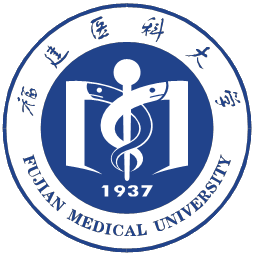
 Introduction
Introduction About the Program
About the ProgramJinggangshan University is recognized by WHO and the graduates of MBBS program are eligible to take the Medical Licensing Examinations held by the medical councils in different countries such as MCI, PMDC, USMLE, HPCSA, SCHS etc.
Teaching Objective The course aims to educate students to study basic theory and elementary knowledge in medicine, gain basic clinical skills of some common diseases diagnosis processing, have the primary treatment ability to urgent, difficult and severe symptoms, and be qualified for careers in hospitals, the medical and health units, medical science research departments as well as other organizations related medicine.
MainCourses SystematicAnatomy,Physiology,Pathology,Biochemistry,Immunology,Microbiology,Diagnostics,Surgery,Internal
medicine,Gynecology&Obstetrics,Pediatrics,Neurology&Psychiatry,EmergencyMedicine,Pediatrics,Gynecology&Obstetricsetc.
StudyDuration 6 Years
Internship Theinternationalstudentswilldotheinternshipintheaffiliatedhospitalsoftheuniversity.Beforetheinternship,studentsare requiredtoreach HSK3.
Degree Awarded
TheEnglishcopyofthedegreewillstateMBBS(BachelorofMedicineandBachelorofSurgery). ThemedicaldegreecanberecognizedbyMCI,MMC,NMC,WHO
Career After obtaining MBBS Degree, the graduates can apply to take the medical licensing examination in the medical council in order to get registered and practice medicine. According to the regulations in different countries, the students may need to do the degree accreditation first. A MBBS degree holder can find jobs in government as well as private hospitals, nursing homes and other health facilities. Except this, one can also start his own clinic or pursue study for master's degree.
 About Jinggangshan University
About Jinggangshan University
History
Jinggangshan University was established in 1958 in the Jinggangshan Mountains.Chinese Communist Party Chairman Mao Zedong and his colleagues established the first rural base of the revolution in the Jinggangshan Mountains in 1927. It was closed due to poor national economy of China in 1963. It was closed five years later when China faced economic difficulties. In 1978, to initiate the Jinggangshan University, Branch of Jiangxi Normal University and Jiangxi Medical University in Jinggangshan was joint together. In the April 1982, and the March 1993, they were renamed respectively 'Jinggangshan Teacher College' and 'Jinggangshan Medical School". In the March of 2000, approved by the Education Ministry of China, Jinggangshan Teacher College was renamed as Jinggangshan University after merging with Ji'an Educational Institute. In the July of 2003, approved by the Education Ministry of People's Republic of China, Jinggangshan Normal University was renamed as Jinggangshan University by joining with Jinggangshan Medicine College and Jinggangshan Vocational Technical College.China's education authorities have re-established Jinggangshan University in the area known as the cradle of Chinese revolution 44 years after it was closed. The Ministry of Education and the provincial government of Jiangxi have signed an agreement to provide more support for Jinggangshan University.
Teachers & Students
The university of 27,000 students and 974 teaching staff was upgraded from the former Jinggangshan College and the campus covers 170 hectares.
The library has electronic periodicals in Chinese or foreign languages and other net services such as foreign language database, diskette database, on-line database with a total storage of 1,030,000 volumes of books .
University Journal
The university publishes its own academic monthly journal, The Journal of Jinggangshan University, including philosophy & social science, and nature science editions. The university also has modern language labs and computer centers. There are altogether 194 practice bases including humanities, social sciences, natural sciences, modern engineering, technological sciences, education and medicine sciences.
Invention
A new type of inorganic–organic hybrid materials – zirconium oligo-styrenyl phosphonate hydrogen phosphate (ZSPP) is discovered in the Chemistry & Chemical Engineering department of Jinggangshan University. In this invention there is contribution of Xiangkai Fu (Jinggangshan University) , Jingrong Chen (Nanjing University) & Liyang Yin (Southwest University).
Major scientific fraud
On 19 December 2009, Acta Crystallographica Section E published an online editorial[5] announcing the retraction of 70 papers from two groups of Jinggangshan University, led by Dr. H. Zhong and Professor T. Liu.
Departments
14 departments are in this University:
Politics and Law
Arts
Commerce
Maths and Physics
Medicine
Industry
Chemistry and Chemical Industry
Life & Science
Nurse
Art and Music
Physical
Medical School
This university includes Jinggangshan University Medical School (Chinese: 井冈山大学医学院; pinyin: jǐng gāng shān dàxué yīxuéyuàn). There is an affiliated hospital with 522 sick beds and 35 medical departments and sections. The affiliated hospital is "Jinggangshan University Affiliated Hospital".
Recognition
This medical school is listed by Geneva Foundation for Medical Education and Research (GFMER)[6]. It is also recognized by WHO and listed in WHO medical school directory
 Accommodation
Accommodation
School Hotel
Facilities: TV, telephone, air-conditioner, Internet, 24 hours hot water.
Cost: RMB 14400 /person for half a year for a double room;
RMB 7200 /person for half a year for a double room (two person share one room).
Flat
Facilities: TV, telephone, air-conditioner, Internet.
Cost: RMB 2000 /person each year (four person room);
RMB 3500 /person each year (two person room).
 Fees
Fees Admissions Process
Admissions Process  Entry Requirements
Entry Requirements1. Under the age of 35 years old, healthy;
2. Willing to obey Chinese laws and regulations;
3. Senior high school graduate with excellent academic record;
 Application Materials
Application Materials1. Photocopy of valid passport
With photo, passport number&expiration date and name included.
3. Graduation certificate of high school
Graduation certificate should be in Chinese or English. If not, it should be translated into Chinese or English and be notarized.
4. Academic transcript of high school
 Reviews
Reviews Scholarship
Scholarship
Tuition
Start Date